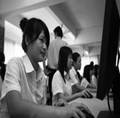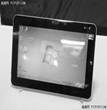题目内容
Read the ________ carefully before you use the new recorder.
- A.information
- B.instructions
- C.messages
- D.articles

 天天向上一本好卷系列答案
天天向上一本好卷系列答案 小学生10分钟应用题系列答案
小学生10分钟应用题系列答案"Dear Grandpa Guo, we are losing our childhoods! Please help us!"
Guo Chuanjie, a famous scientist, received a letter from a Beijing primary school student. The student said that many Chinese kids have to take extra classes on weekends in order to enter key middle schools. The kid hoped more people would hear his voice with Guo’s help.
Guo is a member of the Chinese People’s Political Consultative Conference (CPPCC,中国人民政治 协商会议). Last month the CPPCC members met in Beijing. They are from all walks of life - scientists, businesspeople, doctors, artists and athletes. They give proposals (提案) on the country’s important issues(问题) to make our country better. For the Beijing student’s letter, Guo read it in front of Yuan Guiren, China’s Minister of Education (教育部部长), during a CPPCC meeting.
According to Xinhua, there were 5,762 proposals in all. Many of the proposals were about problems like housing prices, heavy traffic and food safety, which were related to people’s daily lives. Some proposals were about teenagers. For example, singer Han Hong suggested that the government should deal with people who traffic(拐卖) children.
As usual, proposals will be given to relative departments (相关部门) after the meetings. For example, Guo’s proposal was handed to the Ministry of Education. The departments will consider the proposals carefully and see if they can be carried out in the future.
【小题1】 The primary school student thought ____________ with Guo’s help.
| A.children were losing their childhoods |
| B.he didn’t have to take extra classes |
| C.more people would hear his voice |
| D.he could enter key middle school |
| A.housing prices | B.heavy traffic | C.food safety | D.scientific research |
| A.was given to other members of the meeting | |
| B.was sent to the primary school student | |
| C.was handed to the Ministry of Education | D.was returned to himself |
| A.A primary school student wrote a letter to a famous scientist, Guo Chuanjie. |
| B.Guo Chuanjie went to Beijing for the CPPCC meetings last month. |
| C.Guo Chuanjie read the student’s letter during a meeting. |
| D.Guo Chuanjie wrote a letter to the Ministry of Education. |

In the early 1990s the word “Internet” was strange to most people. But today, Internet has become a useful tool for people all over the world. Maybe Internet has been the greatest invention in the field of communication in the history of mankind. Communicating with others on the Internet is much faster. We can chat with a person who is sitting in the other part of the world. We can e-mail our friends and they can read the e-mails within a minute.
Giving all kinds of information is probably the biggest advantage of the Internet. We can use search engines to find the information we need. Just type in a keyword or keywords and the search engine will give us a list of suitable websites to look at.
We can enjoy a lot on the Internet by downloading games, visiting chat rooms or surfing(浏览)websites. There are some games for free. We can meet new and interesting people in the chat now. We can also listen to music and see films.
Now, there is a lot of service on the Internet such as online banking, job finding and ticket buying. We can also do shopping and find nearly all kinds of goods. Sometimes we can find something that is quite good but very cheap.
【小题1】How many main advantages of the Internet are talked about in the last passage?
| A.Three. | B.Four. | C.Five. | D.Six. |
| A.We can find almost anything we want to know on the Internet. |
| B.Some games on the Internet are free. |
| C.We can buy most things we need on the Internet. |
| D.Goods on the Internet are more expensive than those in real shops. |
| A.Online Shopping |
| B.Exchanging Information on the Internet |
| C.The Advantages of the Internet |
| D.Surfing the Websites on the Internet |
